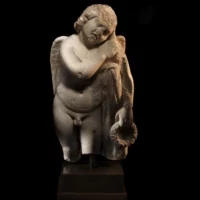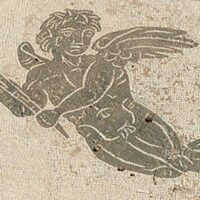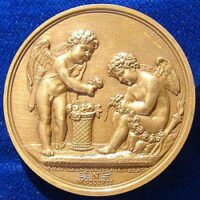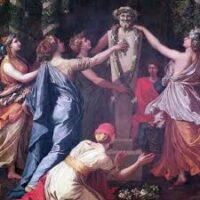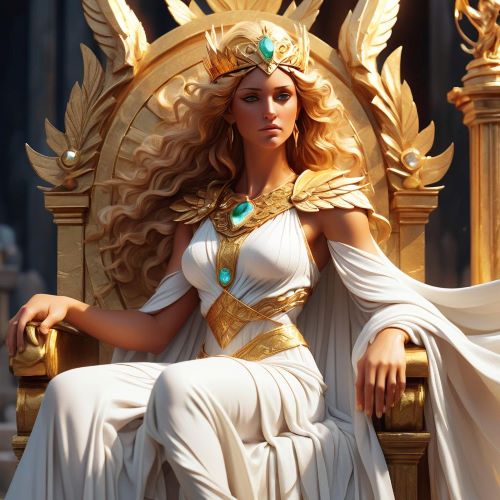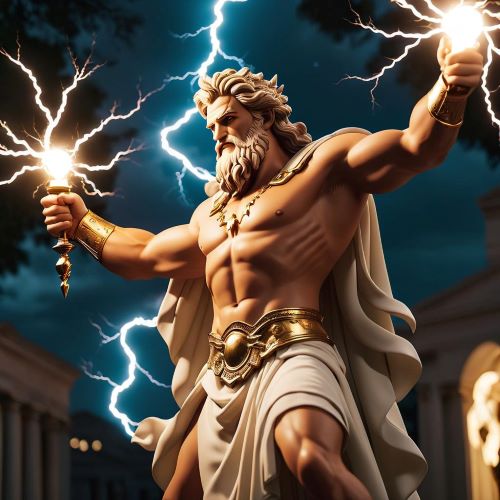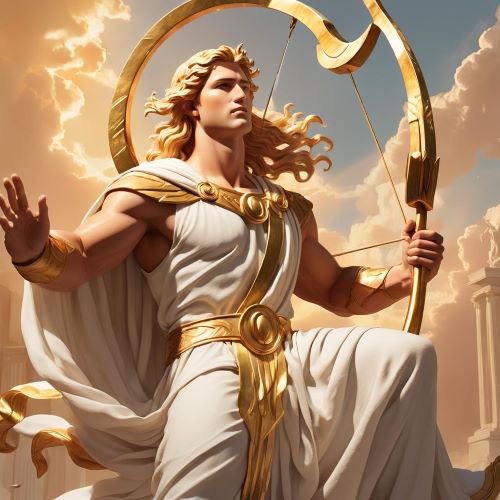Hymenaios : God of Marriage
Listen
At a glance
| Description | |
|---|---|
| Origin | Greek Mythology |
| Classification | Gods |
| Family Members | Apollo (Father) |
| Region | Greece |
| Associated With | Marriage, Weddings |
Hymenaios
Introduction
In the pantheon of Greek mythology, some gods dominated the skies and seas, while others quietly shaped everyday life. One such lesser-known but deeply meaningful deity is Hymenaios—better known as Hymen—the divine spirit presiding over weddings and marriage hymns. Though he never wielded thunderbolts or tridents, Hymenaios held sway over one of the most sacred human institutions: the union of two souls in matrimony.
Associated with celebration, love, and ritual, Hymenaios’ name was often called out in joy during ancient Greek wedding ceremonies. His presence symbolized harmony, prosperity, and divine blessing upon the couple. And while he may not have the fame of Zeus or Aphrodite, the significance of his role is no less enchanting.
Physical Traits
Art and literature often portrayed Hymenaios as the embodiment of youthful vitality and radiant beauty—qualities idealized in marriage. With wings upon his back and a glowing torch in hand, he appeared not just as a divine guest at weddings, but as a guiding light for the newlyweds’ journey together. Sometimes, he was shown wearing a crown of flowers, reinforcing his ties to joy, fertility, and celebration. This imagery painted Hymenaios as both a protector and a symbol: a figure who didn’t just bless the ceremony but also represented the very ideals the ceremony was meant to honor—love, renewal, and the promise of a fruitful life ahead.
Family
Greek mythology is famously rich in overlapping tales, and the question of Hymenaios’ parentage is no exception. Some traditions describe him as the child of Apollo, the god of music and poetry, and a Muse—often Calliope, Urania, or Terpsichore—linking him directly to the arts and lyrical beauty.
Others claim a more romantic and festive lineage, naming Dionysus and Aphrodite as his parents. That origin would place him at the intersection of love and celebration, traits central to his role. There are even versions of the myth that propose he was born to a mortal named Magnes and the Muse Clio, grounding his origins in a more human sphere before ascending to divine status. Each version, though different, reinforces the idea that Hymenaios belonged among deities who inspired joy, music, and passion—fitting companions for a god of weddings.
Other names
Hymenaios’ name has outlived his mythology. The word itself became synonymous with the songs sung at weddings, and the “hymeneal” poetry genre—a form of lyric verse performed during bridal processions—owes its existence to him. In Greek, his name is closely linked to concepts of union and joining, a poetic nod to what marriage represents. Over time, his name was invoked not just as a god, but as a blessing, a wish, and even a kind of protective charm to guard the couple’s happiness.
Powers and Abilities
Unlike gods with broad domains, Hymenaios had a very specific purpose: to ensure that marriages began on the right foot. His divine powers didn’t include controlling the elements or altering fate, but rather influencing the emotional and ceremonial aspects of a wedding. It was said that a wedding without his presence would likely suffer misfortune, making him an essential part of any ancient Greek nuptial celebration.
He was not only believed to bring harmony and joy to marriages but also to inspire the music, dancing, and feasting that followed. His influence was felt in the laughter of guests, the glow of candles, and the shared songs echoing through the wedding hall. Some myths even speak of him as a mortal youth who, through heroic actions or selfless devotion to love, earned a place among the gods. These stories give him a unique dual identity—both a divine figure and a romantic hero.
Modern Day Influence
While Hymenaios may not have the same cultural weight today as he did in ancient Greece, traces of his influence still linger. Traditional wedding songs, candlelit ceremonies, and floral adornments all echo the imagery tied to his mythology. Even the modern expression “tying the knot” has roots in ancient practices that Hymenaios once presided over.
In literature, he hasn’t been forgotten either. Shakespeare invoked Hymen in As You Like It, where the character serves as a literal and symbolic unifier of lovers. Roman poets like Catullus wrote hymeneal verses in his honor, and playwrights such as Euripides and Aristophanes integrated him into stories about marriage and love. Even in today’s pop culture, whether it’s historical fiction, romantic novels, or myth-inspired fantasy series like Rick Riordan’s Percy Jackson, Hymenaios occasionally makes a reappearance—his image reshaped, but his essence intact.
Related Images
Source
Hymenaios: The Greek God of Weddings and Nuptial Songs
HYMENAEUS (Hymenaios) – Greek God of Weddings & the Bridal Hymn
Apollodorus, The Library of Greek Mythology
Hesiod, Theogony
Euripides, Trojan Women
Sappho, Fragments
Contributors to Wikimedia projects. (2002). Hymen (god) – Wikipedia. https://en.wikipedia.org/wiki/Hymen_(god)
Facts and Information on the God Hymenaios. (2019). https://greekgodsandgoddesses.net/gods/hymenaios/



